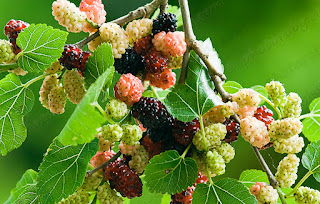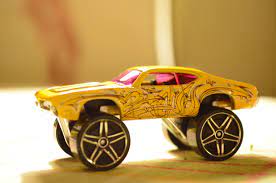ordinary
pleasant
pleasant-looking
a beard
moustache
athletic
distinguished
generous
moderate
resolute
tactful
sociable
|
звичайний
приємний
приємної зовнішності
борода
вуса
спортивний
видний
щедрий
стриманий
рішучий
тактовний
товариський
|
talkative
qualified
honest
stubborn
kind
gentle
clever
practical
impractical
full of common sense
|
балакучий
кваліфікований
чесний
впертий
добрий
м’який
розумний
практичний
непрактичний
сповнений здорового глузду
|
2. Complete the story
with ‘m, am, ‘s, is, are. Translate the story
about Helen’s family.
Hi, I__ Helen. I__
an ordinary schoolgirl. People say I__
a pretty girl. I__ slim and tall. I go in for sports and I have a very good figure. My hair __long and fair, my eyes __blue. I
have a snub nose and full lips. I took after my father in character that’s why I’d like to
start telling you about my family with my Dad.
My Dad __42. He has
got dark hair and grey eyes. He looks
both athletic and distinguished. He __generous and moderate, though
resolute, he’s tactful. My father __always busy.
I’m very happy to look like my mother. She __a
beautiful woman and she doesn’t look her age. My mother is a doctor and is very
qualified for her job. My Mum __very sociable but not talkative and has beautiful manners.
Then, I have an
elder brother. His name __ Alex. He __a nice guy, very honest. He __a student.
Sometimes I think that my brother __a
bit stubborn. Nevertheless he __pleasant
to deal with. We get along very
well. We __ friends. Alex looks like our father. He __handsome, neither slim nor stout. He wears a beard and moustache. He has a straight nose and thin lips. He isn’t
married yet.
And finally my
Granny. Her name __Helen too. I took my name after my grandmother. She __a
pleasant-looking woman in her sixties, with soft brown hair and warm dark-brown
eyes. She __kind and gentle. My mother __a clever woman but a bit impractical, and she needs my granny’s advice. My granny __practical
and full of common sense.
3. Look through the
text and find the English equivalents to the phrases.
Кирпатий ніс, мати гарну фігуру, бути звичайною
школяркою, світле волосся, наслідувати характер тата, бути щедрим, виглядати
спортивним, видний, виглядати як мама (тато), привабливий, приваблива, не
виглядати на свій вік, мати гарні манери, трохи впертий, прямий ніс, не
стрункий і не товстий, носити вуса та бороду, з ним приємно мати справу, за 60,
тонкі губи, повні губи, карі очі, потребувати поради, трохи непрактична, бути
дуже практичним, мати здоровий глузд.
4. Complete the sentences with the words from
the box.
practical brother
sense deal character
look straight age
ordinary snub married
qualified wears
distinguished stubborn moustache
|
1.
I want to say that I am an ________ school-girl.
2.
I took after my father in ________ and I _______ like
my mother.
3.
I have a ______ nose but my brother has a ________
nose.
4.
People say my father looks ________ and my mother
doesn’t look her _____ .
5.
My ______ is pleasant to deal with.
6.
He is a bit ________ .
7.
My brother wears a beard and ________ .
8.
He isn’t ________ yet.
9.
My mother is very _______ and full of common _______ .
10.
She is very _______ for the job.
5. Complete with
the correct preposition:
1. I took … my father in
character.
2. Nevertheless he is pleasant
to deal … .
3. I go … … sports because I
want to have a nice figure.
4. I’d like to start telling
you … my family.
5. Certainly I have a lot …
interests.
6. My grandmother is a
pleasant-looking woman … her sixties, … brown hair and dark-brown eyes.
7. Her colleagues say that my
mother is qualified … for the job.
6.
Complete the sentences about yourself.
ABOUT MY
FAMILY AND MYSELF
Hi, I am … (name). I am a student
of … .
People say I am … (pretty/ good-looking/ beautiful…). I am … (tall/
average height/ short) and … (slim/ neither slim nor stout/ stout). My hair is
… (long/ shoulder-length/ short) and … (blond/ fair/ dark/ red). My eyes are …
(blue/ grey/ brown/ green). I have a … (snub/straight) nose and … (full/thin)
lips. I took after my … (father/ mother/ grandfather/ grandmother) in
character.
My Dad … (how old?). He is a …(businessman/ miner/ lawyer/ driver/
farmer/ doctor/ worker/ teacher/ builder/ …). My father has got …. hair and …
eyes. He is… (риси характеру: generous/ moderate/ clever/
honest/ resolute/ …).
I’m very happy to look like my mother. Her name is… She is a
…(beautiful/good-looking) woman. She has … hair and … eyes. My mother is a … (doctor/
teacher/ shop-assistant/ businesswoman/ housewife/ bookkeeper) and is very
qualified for her job. She is … (риси характеру: full of
common sense/ a bit unpractical/ a clever woman/ kind and gentle/ …).
Then, I have a/an …(elder/younger) … (brother/ sister). His/Her name is…
. He (she) is …(риси характеру). Sometimes I think that my …
(brother/ sister) is a bit …(stubborn/ talkative/ lazy). He (she) looks like my
…(father/ mother). He (she) is … (handsome/ good-looking) and …(tall/ short/
average height). His (her) hair is… and his (her) eyes are… . He (she) has a …(straight/snub/small)
nose and … (thin/full) lips. He (she)…(is/isn’t) married.
Our family is (friendly/ nice/ wonderful).



